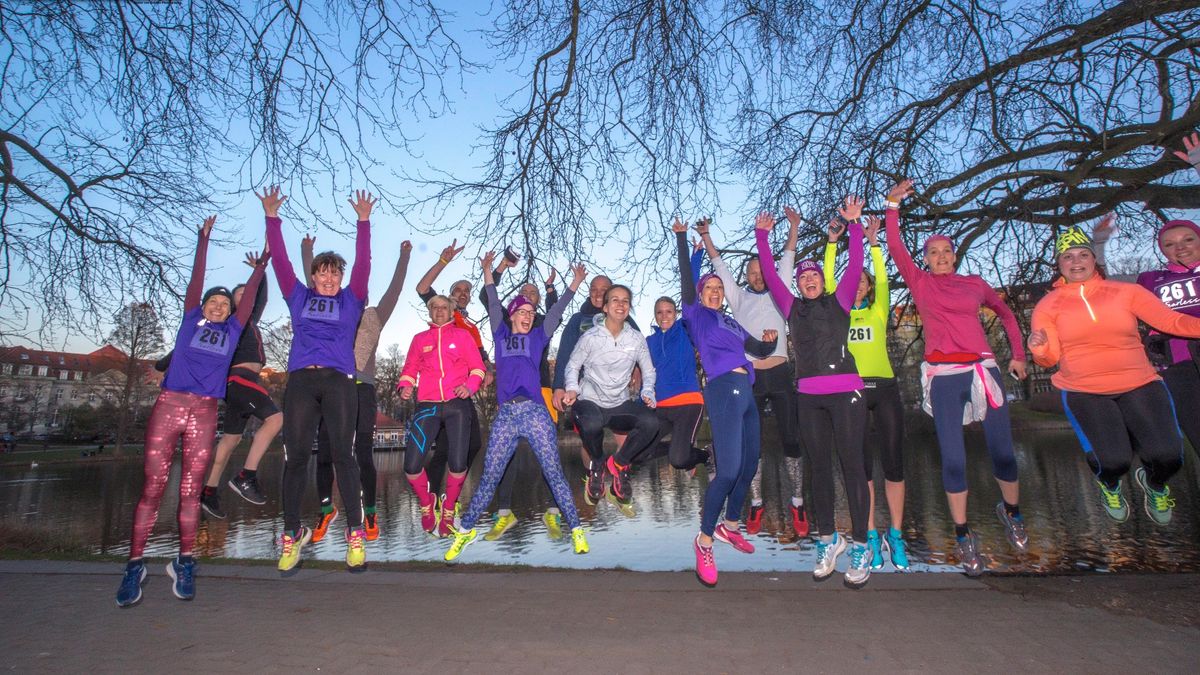Running a marathon is, of course, hard. Running a marathon while the race director tries to rip your race number off is another thing entirely. That’s what Kathrine Switzer endured while becoming the first woman to officially run the Boston Marathon in 1967 (read the definitive account of this incredible moment in history in this extract (opens in new tab) from Switzer’s autobiography).
Switzer continued her athletic career, winning the New York City marathon in 1974 and posting a marathon time of 2hr 51min the following year, and became an activist for equality. In 2015 Switzer co-founded the 261 Fearless (opens in new tab) women’s running club, which has chapters all over the world. As part of the launch for Michelob Ultra’s Run Fund, we took the chance to find out more about the nonprofit 261 Fearless.
The power of the number
My race number in the Boston Marathon when I ran in 1967 was 261, but it was really only from about 2014 or 2015 that people started emailing me to say that they were wearing 261 on their back and that it made them feel fearless. Then I started getting sent pictures – one woman said she wrote 261 on the inside of her wrists to give her courage. And I thought, what does this mean? I was touched, but it was kind of weird when people sent me pictures of their tattoos! But I realised what it means is that people are reading the story of me [being the first female participant] in the Boston Marathon, of how I prevailed and finished anyway [after an official tried to physically remove her from the race] – and that’s inspiring. them.
Taking the first step
I talked about this to friends. I said I don’t want to start another business – I’m too old! They said, no, let’s start a nonprofit (which, by the way, it turns out is tougher than starting another business). So we started 261 Fearless and what it is about, simply, is getting women to take the first step and not to be afraid, because we’ve provided a safe space for them. We have provided friendship, we are non-judgemental. We don’t care if you can only walk with us, we don’t care how slow you are, how old you are. It’s just the first step.
A safe space
It’s really important for a lot of women who are in difficult domestic situations to offer that safe space. They can go with other women and they’re not going to get in trouble at home for running with men. Of course that’s terrible, but it does happen. We have a full educational programme, and we do that in a series of clubs around the world.
We’ve now got clubs in 12 countries, five continents and the coaches of the clubs receive really good training.
Spreading through the world
We’re very proud of our educational programme. And then when we have trained these women, they bring other women along and empower them through walking or running – and then, hopefully, encourage them to be empowered enough to start their own club, in their own neighbourhood, so that we can proliferate this around the world.
It’s a very long-term plan
261 Fearless is very ambitious and I know I’m not going to see how it all ends, because it’s probably not going to reach real fruition for another 20 years. But it’s very exciting when you think of what we possibly could do in places like Afghanistan and Saudi Arabia. Places where women don’t have many opportunities.
Helping women to run at home too
This also all ties in with my work now with Michelob Ultra, with the campaign [for more women to] to run the New York City Marathon. We’re reaching out to organisations who are seeking equality in the sport, and one of the ways to seek equality is simply by building the numbers. There are more women runners in the United States than men, but not in the marathon and not in the longer distances. Michelob Ultra is doing a fantastic job of reaching out with the Run Fund (opens in new tab), helping first-time women marathoners with their training and their finances, and hopefully lining them up with a free bib.
Women still face real barriers
There are still real financial barriers for women. Of course there are financial barriers for everybody but women, in particular, are more likely to be looking after children, older relatives and so on. You can’t pinpoint one reason, but we know that up to half marathon you tend to get equal participation and then as it gets longer you tend to see a drop-off, and more men [participating] than women.
Yet women are uniquely suited to long distances
We know that sometimes women are actually better at long distances. It’s definitely physiological: men have speed and power and strength that we can never have as females, but we have endurance, stamina and flexibility that they will never have.
Female running is only really 50 years old. We are absolutely just at the beginning of exploring what women can do.
The Michelob ULTRA Run Fund (opens in new tab) has the goal of reaching 50% representation of female and non-binary runners in marathons, in part by by covering race fees and providing training to first-time marathon runners.
